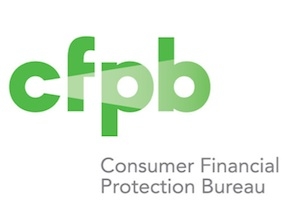Advertisement
CFPB Attacks Kentucky Firm Over Illegal Real Estate Kickbacks

The Consumer Financial Protection Bureau (CFPB) filed a lawsuit in federal district court against a Kentucky law firm, Borders & Borders, PLC, and its principals, for illegally paying kickbacks for real estate settlement referrals through a network of shell companies.
“Today’s action sends a clear message that companies cannot design business structures to hide illegal kickbacks,” said CFPB Director Richard Cordray. “The CFPB will continue to pursue companies that seek to profit from convoluted arrangements that limit competition and hurt honest businesses.”
The CFPB alleges that Louisville law firm Borders & Borders, PLC, and its principals, Harry Borders, John Borders, Jr., and J. David Borders, violated the Real Estate Settlement Procedures Act (RESPA) by operating a network of affiliated companies to pay kickbacks for referrals of mortgage settlement business. RESPA prohibits giving and receiving kickbacks for referrals of settlement service business involving federally related mortgages. When companies pay kickbacks in exchange for referrals, it can hurt competition and inflate real estate settlement costs for consumers, while creating an uneven playing field that puts law-abiding businesses at a disadvantage.
According to the CFPB’s complaint, Borders & Borders operated nine joint ventures with the owners and managers of local real estate and mortgage broker companies, and allegedly used the joint ownership to disguise illegal kickbacks as legitimate profit sharing.
The complaint alleges that when a local real estate or mortgage broker company with a preexisting arrangement referred a homebuyer to Borders & Borders for closing or other settlement services, the law firm would arrange for the title insurance to be issued by the corresponding joint venture. The profits from the joint venture would then be split between the joint venture’s owners: the Borders principals and the referring real estate or mortgage broker.
According to the complaint, the nine joint ventures were not bona fide entities and did not have their own office space, email addresses, or phone numbers, and all nine companies shared a single independent contractor who was also an employee of Borders & Borders. Each company only issued title insurance policies for homebuyers that had been referred to and by Borders & Borders, and did no advertising to attract other business. The companies performed no substantive title work, all of which was instead performed by the staff at Borders & Borders. The CFPB believes the entire arrangement served no significant business purpose beyond acting as a conduit for kickbacks in exchange for referrals.
Borders & Borders PLC received substantial fees for closing services it provided to consumers referred by the brokerages involved in the illegal referral network. Harry Borders, John Borders, Jr. and J. David Borders received substantial distributions from the nine companies during that period. The CFPB’s lawsuit seeks disgorgement of all ill-gotten proceeds from the referral arrangement, and an injunction to stop the defendants from further violating RESPA.
About the author





